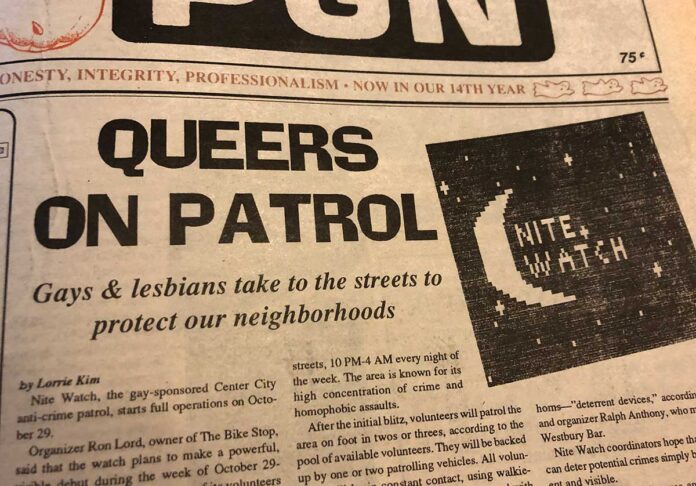One thing that we as LGBTQ people have always had to grapple with is how to describe ourselves, both on an individual and community wide level. From Henry Gerber’s Society for Human Rights in 1924 to the expanding list of acronyms in 2022, the language we use to describe ourselves has been evolving with varying levels of discussion and dissent along the way. One person’s preference is another person’s objection. Such debate makes sense, considering the vast difference from one member of the community to the next.
But naming ourselves and continuing to refine the language used to show our community is among the most important work that we can do. In fact, even with all the definitions we employ today, it’s probably the most vital thing we can continue to do. The playwright Eve Ensler once said “Naming things, breaking through taboos and denial is the most dangerous, terrifying, and crucial work.” And she was right about all of it.
In the last few years, you may have heard or read the acronym SOGI (sexual orientation and gender identity) used in relation to the push for more health data of LGBTQ people. That acronym has risen alongside a real and urgent need for the information it describes. It’s easy to say, quick to read, and it opens up avenues for discussion for people who don’t know what it means or don’t know why such data is necessary. Such language tools that succinctly get our message across — words, acronyms, and slogans — have been crucial in the fight for equality.
But while SOGI might be an easy, inoffensive, term for LGBTQ people to use, other terms’ acceptability have not been as unanimous. Take the word ‘queer,’ for example. In 2022 its usage is relatively widespread. A lot of people say and write it to describe themselves and the wider LGBTQ community, and it doesn’t offend as many people now as it used to. But that wasn’t always the case.
In October 1990, PGN ran an article with the headline “Queers on Patrol,” about a community watch program in the gayborhood. Volunteers patrolled the streets in groups of two and three, noting violent or troubling situations and calling the police when necessary. The group also worked with the Sixth Police District, which expanded its mini station hours to encompass the program. All in all, a worthwhile development to help quell crime in the area.
However, the negative response that PGN received for printing the word ‘queer’ on the front page was heavy and swift. The amount of vocal readers who found the word offensive was so high, in fact, that PGN printed a front page apology the very next week.
“While some organizations have tried to popularize the use of the word and reclaim it,” the apology read in part, “it is obvious to us at PGN that the usage has not caught on, and we apologize to those people who were offended and we apologize for letting you down.”
The paper apologized to readers, understood their point of view, and said it would do better. Problem over, right? Wrong.
The week after the apology, PGN received more letters, but ones of a different sort. This time, the letters were from people who were trying to normalize the use of the word ‘queer’ and were offended at the apology. Letters included one from members of the group Queer Action, which read:
“As proud, self-identified queers, whom you have bent over backwards to insult in that odious “clarification” can we expect to see a further clarification on next week’s front page to make up for this current offense against us?” The letter goes on to state: “We are infuriated that you have caved in so thoroughly and shamelessly over what should have been a minor issue of wording.”
It’s important to note the date on all this discourse. The late ‘80s and early ‘90s were right around the time that reclamation of the word began in full force. If a headline like “Queers on Patrol” had been printed in 1976, the blowback would have been immediate and much more in favor of not using the word. In 2022, using ‘queer’ in headlines, articles, and other areas is common. But in the early ‘90s, we were in the midst of a usage shift. Tensions were high for many reasons, including the AIDS crisis, and the two groups — for or against the use of the word — were far apart in their beliefs. Over time, through shared conflict and culture, the divisions on the issue lessened and the word was more widely accepted. But the dissent and discussion had to happen in order for such a shift in acceptable usage to occur. Similar debate happened with the word ‘gay,’ and words such as ‘homosexual,’ while still used in some instances, have fallen by the wayside.
It’s hard to guess what new word, acronym, or slogan will be the source of such debate in the future. But one thing to be certain of is that the debate will happen. We are always looking for new ways to more accurately describe ourselves and our community. And the better we can do that, the easier things will be, from the journey to equality to the journey of a single person who simply wants to understand who they are.

